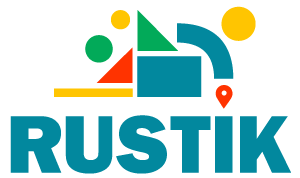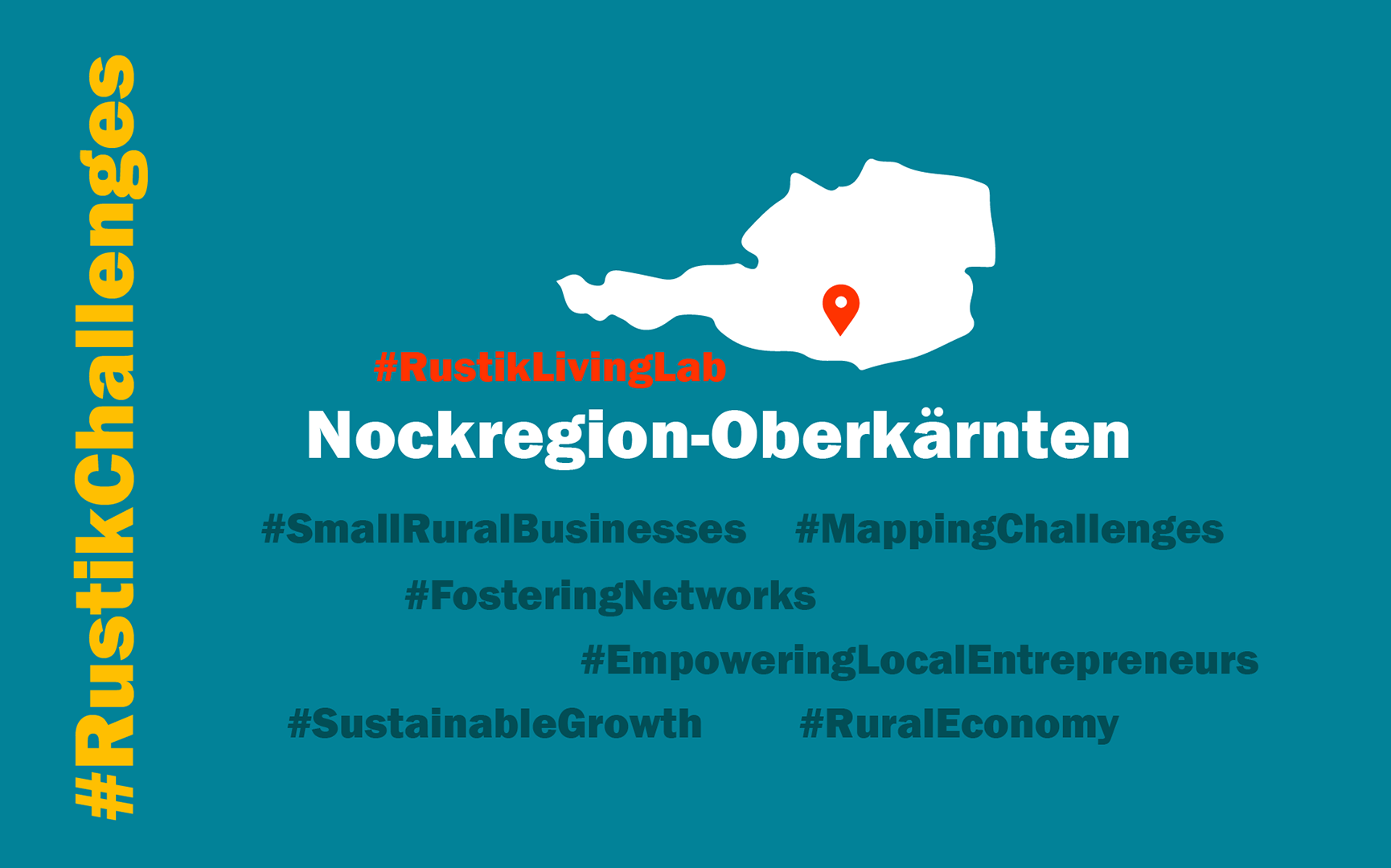Welcome to the inaugural Living Lab Report for the Austrian Pilot Region, Nockregion-Oberkärnten, situated in the heart of the Central Alps within Carinthia’s southernmost province. Covering 1,324 km² and encompassing 17 municipalities, this region grapples with the persistent challenge of population decline. With only 15% dedicated to permanent settlement, the economic landscape thrives on key sectors like tourism, agriculture, forestry, trade, industry, and construction.
Living Lab Challenge
Our Living Lab challenge focuses on Small Rural Businesses (SRB) in Nockregion-Oberkärnten. Initially exploring the application of a Quality of Life (QoL) Index, we redirected our attention to the more pertinent challenge of identifying the needs and challenges faced by SRBs and establishing a network to support them. This encompasses businesses, including farmers, with no more than 50 employees. The primary objective is to pinpoint data gaps, map the current regional state, and foster a comprehensive understanding of challenges encountered by entrepreneurs and business owners.
The groundwork laid will assess and justify the necessity of establishing a regional network/platform for SRBs. Envisioned as a central hub, this platform addresses challenges such as strengthening awareness of regional products, fostering value chains, facilitating joint training, enhancing negotiation power, addressing sustainable green business management issues, navigating rental space availability, managing challenges in employee recruitment and retention, and focusing on women as a specific target group.
Rationale
This approach rectifies oversights in previous projects by focusing on SRBs’ absence in regional strategies, especially during their foundation and takeover processes. The decision to spotlight SRBs aligns with their substantial contribution to the local economy, providing diverse employment opportunities. In Carinthia, small businesses constitute about 94% of all businesses, playing a crucial role in stimulating local activities and combating vacancies, contributing to the overall attractiveness of rural municipalities.
Knowledge to Date
Insights from expert interviews, PRP meetings, and literature research showcase existing business collaborations and challenges faced by SRBs in Nockregion-Oberkärnten. Previous initiatives like IGO and AGZ aimed at business settlements and sharing employees among different employers, underscoring the region’s efforts. Challenges, including limited time capacity for small business owners, difficulties in consolidating projects, and issues like employee retention and high rental prices, have surfaced through stakeholder engagement.
Research Questions
- What is the current state of the SRB landscape in Nockregion-Oberkärnten concerning the number of businesses, sector, branches, and employment sizes?
- What data points and indicators are relevant for stakeholders to describe or gain a better understanding of the current situation of SRBs? What are the opportunities and shortcomings
- What benefits do SRBs envision from a new platform or network, and how should it be structured to ensure acceptance?
Policy Relevance
To address the socio-economic transition, a holistic approach involving all sectors is deemed necessary. The Living Lab’s transition challenge aims to strengthen the position of SRBs in regional decision-making processes, aligning with the PRP’s objective of attracting new inhabitants and encouraging locals to stay. Establishing a network of SRBs is viewed as a critical step in adapting regional policies to address demographic change.
Emerging Data Needs
The Living Lab will focus on SRBs, aiming to identify and fill data gaps to understand their challenges and obstacles. Combining quantitative and qualitative local data will provide a comprehensive foundation for future strategies and decision-making.
Data Availability
While statistical data on workplaces, companies, and employees for SRBs is available, specific needs and challenges data are lacking. Expert interviews and consultations with stakeholders will be conducted to improve the knowledge base. OpenStreetMap data since 2012 will complement spatial analyses, providing insights into the spatial distribution of economic activities in the region.

